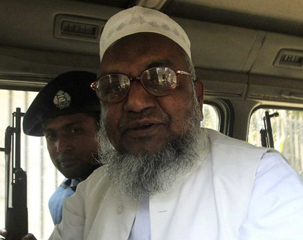Dhaka, Dec 12: Bangladesh has executed outspoken opposition leader Abdul Quader Mullah, who had been convicted of war crimes by the Supreme Court of the internal conflict ridden country. The development comes hours after the Supreme Court rejected a last-minute appeal.

Several TV stations also reported the execution.
Jamaat-e-Islami party said the death sentence was politically motivated, and warned of "dire consequences" if he were executed.
Mullah was convicted of war crimes committed during the nation's war of independence against Pakistan in 1971. His lawyers tried to convince the Supreme Court, which began hearing the case on Wednesday, to throw out the sentence.
"My client has been deprived of fair justice. But since the highest court has made the decision we have nothing more to say," defence lawyer Khandaker Mahbub Hossain said.
The case involves Bangladesh's independence war against Pakistan in 1971. The government says Pakistani soldiers, aided by local collaborators, killed 3 million people during the war.
Mullah is the first person executed in special trials begun by Prime Minister Sheikh Hasina in 2010 of people suspected of crimes during the war of independence. The government says Pakistani soldiers, aided by local collaborators, killed 3 million people and raped 200,000 women during the nine-month war.





Comments
Add new comment